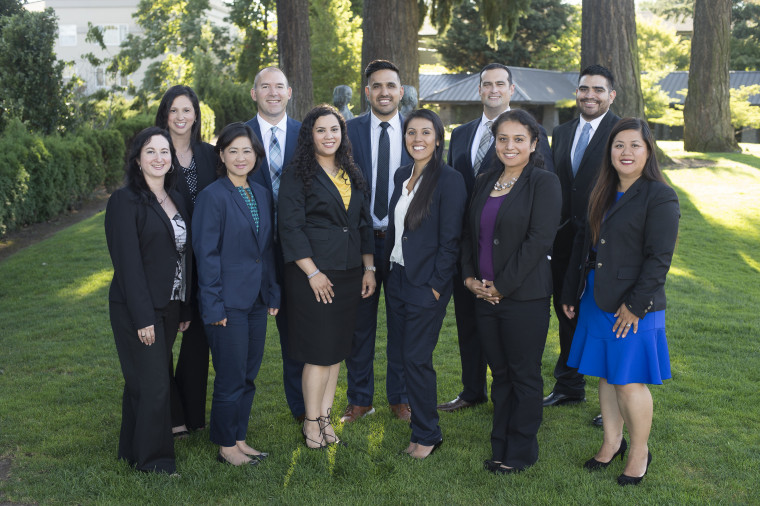2019 Voice for Justice Award Honoree: Chanpone P. Sinlapasai
Open gallery

We are proud to present our 2019 Voice for Justice Honoree, attorney Chanpone P. Sinlapasai, as she represents her firm Marandas Sinlapasai, P.C. Focusing much of her work in the immigrant and refugee communities, she was lauded by one nominator as an example of the kind of champion we need in our communities today.” Continue reading to learn a little more about Chanpone in her own words.
What is one thing that has surprised you/you’ve learned about victims’ rights since you started your career?
I continue to learn each day from victims. What I’ve learned over and over again, the hard way, is how our systems often fail victims who try to escape and how it continues to traumatize them over and over again - this is on both the state and federal level. We have a long way to go to really care and help victims heal. Victims of crime come from all over the world and many of them come from all types of backgrounds. Not all victims are poor, not all of them are women, not all of them are young - I’ve seen them from young children to our elderly: pain, suffering, isolation, depression, anxiety, shame, and feeling worthless cross each of them.
Victims come in all shapes and sizes and our judicial systems do not take that into consideration when evaluating how to best service and protect survivors. Immigration attorneys have historically worked alone and cross collaboration is limited in how it is applied for a holistic healing. Often this is unintentional by the framers of our systems. For example, in the case of a trafficking victim who is brought in illegally from a foreign country by force, fraud, or coercion and that person is forced to work by the trafficker in both the sex industry and as a forced laborer - we do not have a universal system that tracks traffickers from a state to state or state to federal system. We have had cases were the traffickers have been doing this work for generations.
When I feel that Victims’ Rights laws have moved forward, something else changes in federal policy that takes us back. Right now it feels like there is an attack on Victims’ Rights on the Federal level.
What is the most rewarding thing you have done in your professional or personal life?
The most rewarding thing I’ve done in my professional life is sticking with victims who have been turned away and those who have been given up on and winning their cases. Many of these cases have taken years and others decades. Some of my cases have been through the criminal system, immigration system, and often have mental health and medical issues. The barriers that my clients face seem limitless, but we tackle them one at a time and safety plan for every scenario that can go wrong. I do not always have the answer, but my goal is to ensure that each client feels that we are fighting for them in a broken system and a system that often that has not heard their voice.
In my personal life, I have surrounded myself with people who share the same hopes, vision, and fighting spirit for lifting our global families. The work that I do leaves my team in tears at times, so staying positive and focusing on the mission of respect, empathy, and compassion is critical in those that we partner up with.
If you could change one thing about the current victims’ rights environment, be it legal, political, public recognition, victim social / psychological services, etc, what would it be?
The most critical thing that I could change at this time would be providing victim centered mental health access throughout the legal and healing process. The trauma and harm that a victim deals with is life long and the scars that aren’t seen are often the most painful. We’ve dealt with victims who have been held captive for years and decades while being both sexually, mentally, and emotionally abuse and threatened. Some women have given birth as a result of the violent crime and/or trafficking, more often than not the person that caused the harm can be someone who they trusted or even a loved one. Our judicial and service system does not give adequate care and time to contemplate and provide meaningful mental health services, especially, having mental health service providers that are bi-lingual and bi-cultural. Many victims are given temporary mental health services, but not consistent long term care with one provider. It would wonderful if we had mental health specialists, just like we have victims’ advocates, working with law enforcement agencies, attorneys, and other social service providers.

